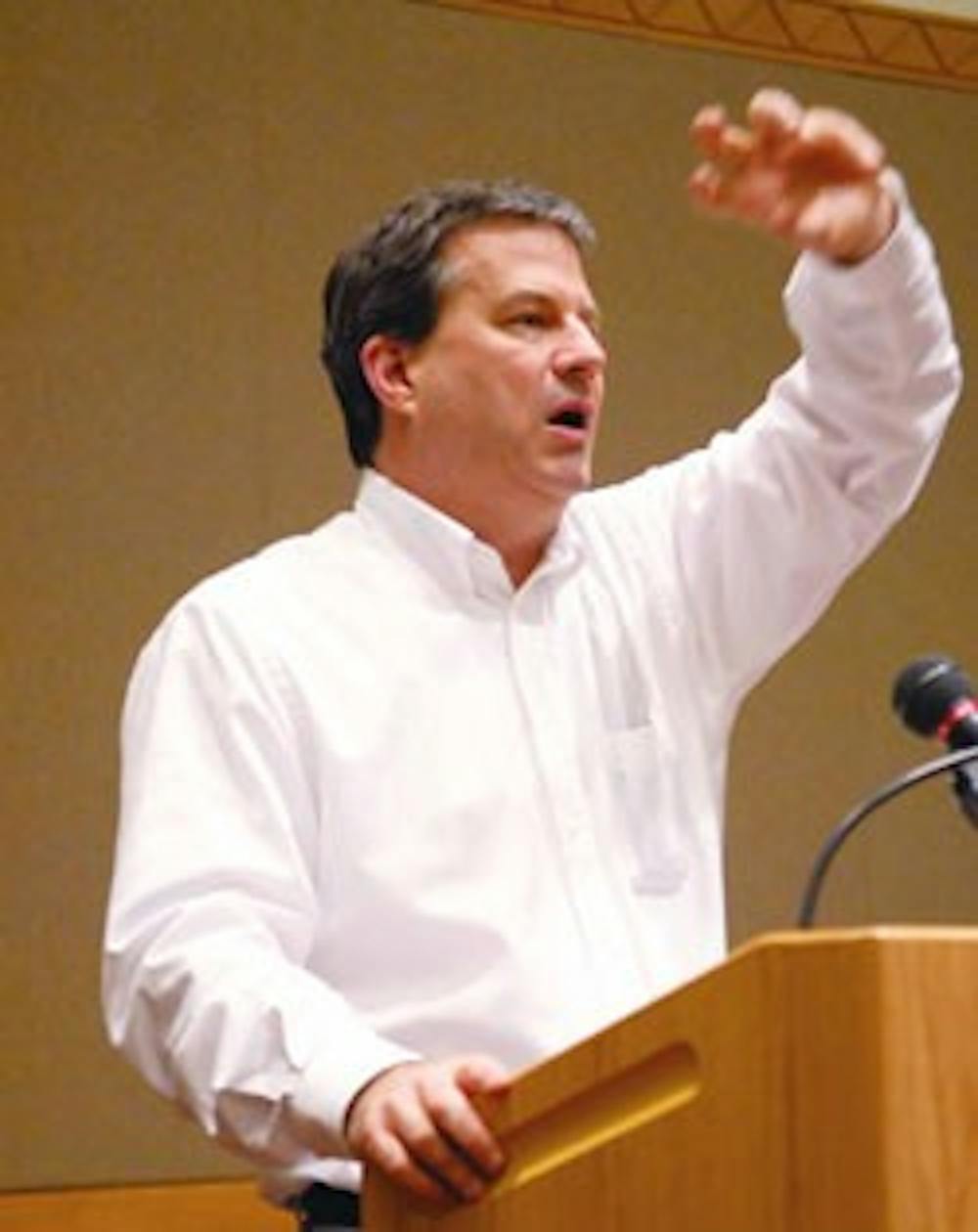by Jeremy Hunt
Daily Lobo
Getting chased out of Mexico by German Mennonite drug smugglers was Sam Quinones' last experience as a freelance writer there.
Quinones, a Los Angeles Times reporter who covers immigration issues, lived in Mexico from 1994 to 2004, traveling to villages and hearing stories of the effects of immigration on the border region.
He spoke about his book - Antonio's Gun and Delfino's Dream, available from UNM Press - on Thursday in the SUB.
Get content from The Daily Lobo delivered to your inbox
German Mennonites immigrated to Chihuahua and formed a colony outside a village called CuauhtÇmoc, Quinones said.
While in CuauhtÇmoc, Quinones said he interviewed a cousin of the largest smuggler at the time. Quinones said he was chased out of the country after he gave the cousin his business card and said he would like to interview the smuggler.
Quinones said Mexicans who immigrate to the United States want to rise above their
circumstances.
"It's this kind of person Mexico loses to immigration," he said. "They come because they're searching for an alternative to submission."
Quinones said Mexican border towns, such as Tijuana, are a refuge for many Mexicans who are tired of oppression.
"The border is a place where people come to escape the elites," he said. "It's also a place where people can come and be free of the constraints of their villages."
There are many opportunities in border towns, Quinones said.
"It's like where anything can happen," he said. "That's what the border is all about."
He said many Americans want tighter border security because of illegal immigrants and drug smuggling.
However, Mexicans wouldn't come here to work and drugs wouldn't be carried over the border if there wasn't a benefit in doing so, he said.
"The supply side and the demand side are two sides to the same equation," he said. "Everything along the border is going to be circumvented as long as the demand is there."
Quinones said the solution is not to kick out illegal immigrants.
"It's a hypocritical way of dealing with the issue," he said. "We don't want to deal with the issue of why they come here."
Americans don't want to confront drug addiction and the desire for cheap labor, which is what makes illegal immigration and drug trafficking lucrative investments,
Quinones said.
"We're trying to have our cake and eat it, too," he said. "We get the benefit of $20-a-yard for landscaping, for example. At the same time, we like to sit back and say, 'Those darn immigrants.'"
More people need to hear Quinones' stories because he understands border issues better than most, said Clark Whitehorn, editor in chief of UNM Press.
"Sam talks about the complexities of immigration," he said. "Sam gets down, and he talks to the kids, (and) he talks to the musicians. It's the ones you don't read about in our papers."
Whitehorn said Quinones explains immigration and drug trafficking from a perspective most people don't take.
"Every time a Hollywood starlet gets lit up, she doesn't go to jail," Whitehorn said. "But a poor kid from Mexico will go to jail for 10 years in the federal system."
Quinones said many Mexicans are brought up believing they have to immigrate to the United States to have a better life.
"It's become a culture," he said. "They're expected to leave."
The United States needs to realize there are costs associated with closing the border and with keeping it open, Quinones said.
There are so many problems with the border because the U.S. can't decide what it wants, he said.
"We haven't asked ourselves what we want," he said. "We're not thinking coherently about it. It's just not very mature."






